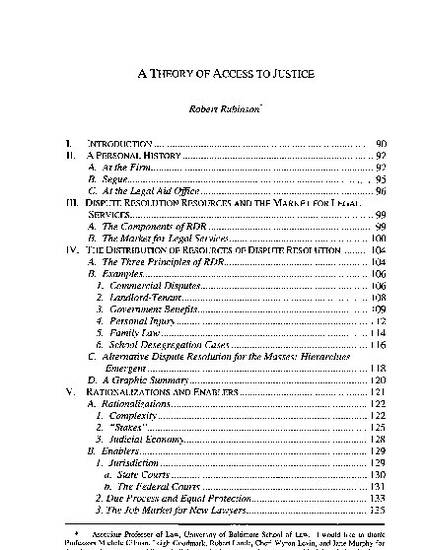
This Article draws upon three observations: 1) the vast majority of disputes involve low-income litigants; 2) the vast majority of public and private resources of dispute resolution are allocated to disputes involving wealthy individuals and organizations; 3) any principled moral or ethical analysis demonstrates that the stakes are much higher in disputes involving low-income disputants than in disputes involving affluent individuals or organizations. Thus, the legal matters that attract a minute percentage of dispute resolution resources implicate issues of food and shelter, life and death. The Article describes a methodology - called "Resources of Dispute Resolution" or "RDR" - for describing why this is the case, and then illustrates the operation of RDR theory in a range of cases: commercial disputes, landlord tenant matters, government benefits, personal injury, family law, and school desegregation cases. A range of "enablers" and justifications submerge from view the profoundly disparate allocation of the resources of dispute resolution. These are invariably misleading or false, such as the supposed greater "complexity" of commercial matters and the "neutral" operation of jurisdictional rules. The Article concludes by considering two relatively new methods of dispute resolution - mediation and community lawyering - and how, possibly, they can break the stranglehold of the principles of RDR.
